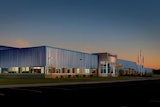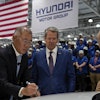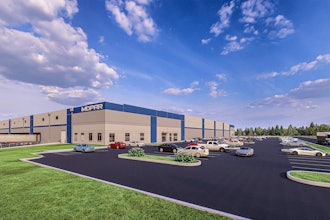Automakers have been leading U.S. manufacturing since the industry’s earliest days. The scale of automotive production requires constant innovation to improve manufacturing processes, especially given the speed at which tastes, styles, and capabilities of vehicles evolve.
As today’s vehicles incorporate ever-increasing technological advances, automaking is undergoing a significant shift in priorities. Manufacturers are changing rapidly to keep up as tech improves. This impacts every aspect of their vehicles, from comfort to performance.
The ultimate hedge against this ever-changing environment is for automotive OEMs and their suppliers to continue concentrating their investments in regions with an established manufacturing presence, a highly developed infrastructure, a history in automaking and attendant industries, a ready pool of talent, and a pro-business regulatory environment to make the most of the next wave of automotive trends.
Adapting to these changes requires manufacturers to create flexible, technology-driven environments to supplement traditional automobile manufacturing. Research firm Lucintel’s 2017 market report suggests the global automotive infotainment market will grow at a compound annual growth rate of 8.4 percent between 2016 and 2021, making it worth about $56.7 billion. That’s an impressive figure for a component of automaking that was practically nonexistent 15 years ago.
Managing Change
The challenge for manufacturers moving forward is keeping up with the pace of change in a capital-intensive production environment. Committing too heavily, too early, or too late to any single trend or technology could prove disastrous.
Flexibility is the key. Today’s technology will give way to the advances of the future faster than anyone expects. As Thomas Friedman says in Thank You for Being Late, “I could see that the pace of change had really accelerated.” Manufacturers need to regularly adapt their strategies, supply chains, talent pools and community partnerships to remain relevant.
Automotive Tech Trends Have Local Impacts
The advanced technology already taking hold in the automotive industry will only become more widespread as game-changing advancements on the horizon make their way to the production line. These innovations are transforming every corner of auto manufacturing and will have a significant impact on the automakers themselves, as well as on their employees and suppliers and the regional economies in which they’re embedded.
No. 1 - Automated Manufacturing
The scope and capabilities of automated manufacturing will only grow. While this growth promises improved processes, it also requires revisiting workforce priorities and purposefully fostering new skill sets such as mechatronics, a blend of mechanical and electrical engineering, computer control and information technology.
No. 2 - Ride-Sharing
The success of ride-sharing apps like Uber and Lyft may or may not suggest the auto industry is headed toward a post-ownership future. This could lead to fewer auto sales, but recent data published by AutoNation shows Millennials — predicted by many to be uninterested in car ownership — were the fastest-growing market segment for auto manufacturers over the past five years. Again, flexibility and responsiveness will be crucial as manufacturers may need to adjust to a future where cars are more often an on-demand resource than personal property.
No. 3 - Connected Vehicles
Building internet connectivity into various automotive components is the cutting edge of today’s auto tech. Even Chevrolet’s traditionally rugged Colorado pickup, built just down the road from my office, has a built-in 4G LTE signal and integration with Apple and Android apps. Strategy&’s industry report suggests that sales for connected car products could grow four times as large between 2015 and 2020. Expect that expansion to continue as more and more automotive components take on connective features.
No. 4 - Autonomous Vehicles
Major automakers and global tech giants both have invested heavily in the potential of self-driving cars, and mature designs are already making their way to the road. How exactly this change will affect manufacturers, as well as city and state transportation departments, is impossible to predict. But what’s undeniable is that it will transform the perception of cars and require drastically new approaches to how they’re built — engineering smarter tech into every component.
No. 5 - Greener Vehicles
Hybrid technology and more sustainable vehicles are still an ongoing and dynamic conversation, and every major automaker has significant plans to improve fuel efficiency and overall sustainability. Electric car sales in January of this year were 59 percent higher than they were in January 2016. Manufacturers need to adapt to a wave of new designs while making way for new players in the industry. Energy storage technology designed for automotive applications is finding its way into the home, further blurring the traditional definitions of automaking.
No. 6 - Geopolitics
Although not a tech trend, geopolitics will have an impact on auto manufacturing that’s just as deep and difficult to adapt to. The auto industry relies on a complex global supply chain, and the potential instability of international relations for the foreseeable future promises to create both disruptions and opportunities. Manufacturers need to be just as adaptable to changes in geopolitics as they are to advances in technology.
The future of automaking is as promising as it is unpredictable, and an environment that allows manufacturers to focus their energy on the constant innovation that will determine whether they survive — and thrive — the upheaval has only just begun to take shape. Huge changes are coming, but the manufacturers that evolve will reap huge rewards. Now is the time to lay foundations, build partnerships and finalize commitments hedged on the potential of the near future.
Steve Johnson is CEO of Missouri Partnership.























